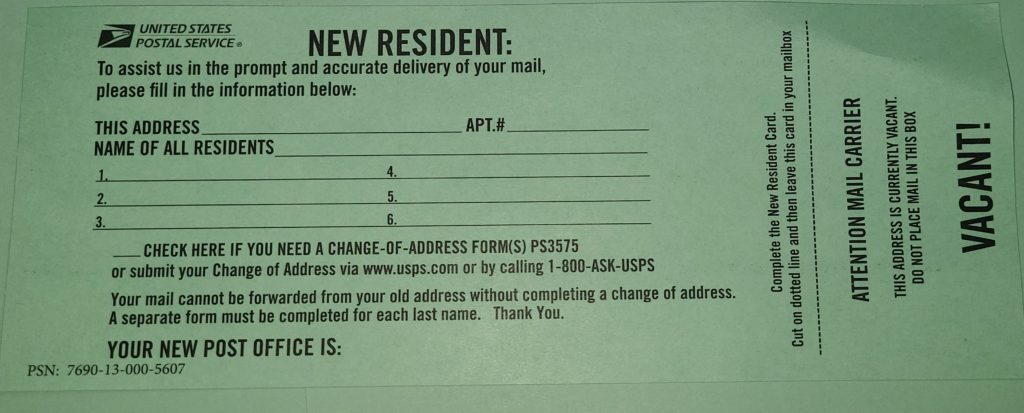Immigration Law practitioners emphasize to their clients, early and often, the need to keep the U.S. Citizenship and Immigration Services (“USCIS”) informed within ten days of any address change. Non-U.S. Citizens over the age of 14 in the United States for thirty days or longer are required to register and submit biometrics to the Department of Homeland Security within thirty days of entry. Also, Aliens must comply with section 265 of the Immigration and Nationality Act (“INA”), codified at 8 U.S.C. § 1305, regarding the 10-day notice of any changes in address. Failure to do so may lead to such devastating results as denial of immigration benefits, fines, imprisonment, or removal from the United States, possibly with a lengthy bar to re-entry. Because of the dramatic consequences of noncompliance, USCIS expressly warns: “Changing your address with the U.S. Postal Services (USPS) will not change your address with USCIS . . . . ” All this can be avoided by changing your address online through an existing USCIS online account or by completing the AR-11 and submitting it to USCIS. But even this action may not be enough to prevent mail sent to you by USCIS from being returned as undeliverable and triggering an inquiry into your current address and compliance with section 265 of the INA by the USCIS. Mail delivery is especially problematic in Alaska, where the USPS has contracted out many delivery services and residential mailboxes may be located a few miles from the actual residence. You won’t know when the USPS carrier doesn’t deliver mail to your mailbox but returns it to the sender. Recently, one of our clients, who married a U.S. Citizen (“USC”) and moved into the USC’s residence before applying for immigration benefits, had important correspondence from the USCIS returned as undeliverable. Because our client had received USCIS correspondence in the past at this address, it was surprising when USCIS notified us of the returned correspondence and assumed there had been an unreported change in address by the applicant. It’s not surprising correspondence returned to USCIS resulted in an inquiry as to the applicant’s current address and compliance with section 265 of the INA during the pendency of the application packet. We guessed the notice was probably returned by a new mail carrier, who did not recognize our client’s name as a person living at the residential address on the envelope. To ensure the USPS carrier didn’t repeat this practice, we talked to the local USPS and were advised that a change of address may not be enough. Instead, our client needed to complete a “New Resident” card and place it in the mailbox so the local carrier on the route would know our client resides and receives mail at the address. If you recently married a USC and established your marital residence in Alaska, you should obtain from the nearest Post Office and complete a “New Resident” card and place it your residence’s mailbox. This act, coupled with submitting a completed USPS Change of Address Form PS3575 to the USPS, will prevent from mail properly addressed to you at a new residential address from being returned to the sender in error. During the pendency of an immigration application, the last thing you want is to have your case processing delayed by something as simple as returned mail. At the very least, you will have to respond to USCIS assuring it of your current address and compliance with the INA. For a free, initial consultation on your immigration matter, contact PLGPC at 907.885.6619, info@polarislawgroupak.com, or our office in North Pole. You can also complete a Client Intake Form and schedule a consultation on our website by visiting us at https://polarislawgroupak.com/contact/

